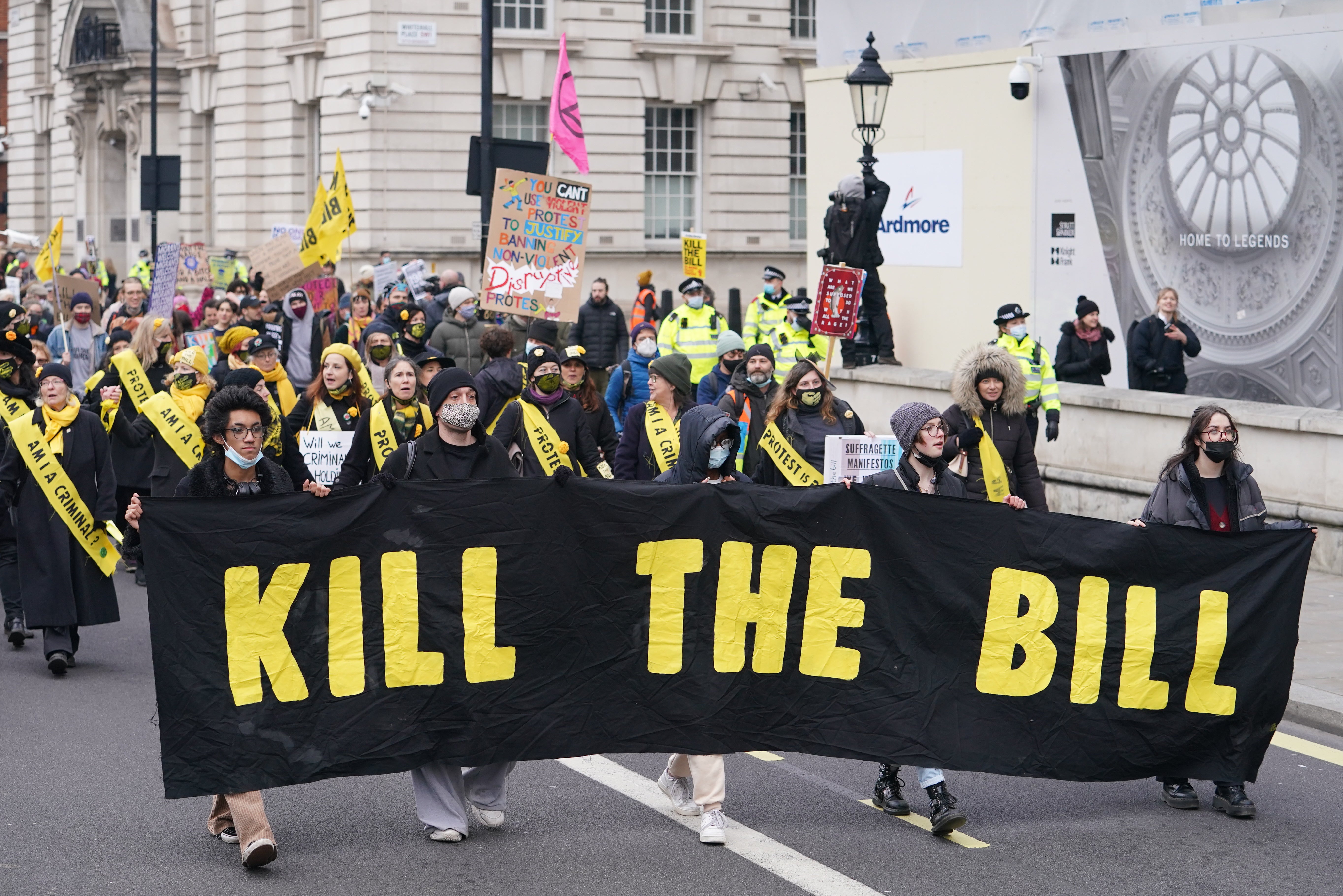Conservative MPs vote against move to make misogyny a hate crime
Labour MP Stella Creasy says ‘many of us’ can’t go home without looking over shoulder

Your support helps us to tell the story
From reproductive rights to climate change to Big Tech, The Independent is on the ground when the story is developing. Whether it's investigating the financials of Elon Musk's pro-Trump PAC or producing our latest documentary, 'The A Word', which shines a light on the American women fighting for reproductive rights, we know how important it is to parse out the facts from the messaging.
At such a critical moment in US history, we need reporters on the ground. Your donation allows us to keep sending journalists to speak to both sides of the story.
The Independent is trusted by Americans across the entire political spectrum. And unlike many other quality news outlets, we choose not to lock Americans out of our reporting and analysis with paywalls. We believe quality journalism should be available to everyone, paid for by those who can afford it.
Your support makes all the difference.Conservative MPs have rejected an attempt to protect make misogyny a hate crime in England and Wales in a bid to offer women greater police protection.
Tory backbenchers backed the government, as MPs voted 314 to 190 to remove a Lords amendment to the Police, Crime, Sentencing and Courts Bill aimed at making misogyny a hate crime.
Labour MP Stella Creasy condemned the government’s refusal to listen to women – telling policing minister Kit Malthouse he could go home without looking over his shoulder but “many of us can’t”.
Speaking in support of the move make misogyny a hate crime, the MP for Walthamstow said many of her arguments are the same people “made 20 years ago when it came to recognising racially motivated abuse and religiously motivated abuse”.
Ms Creasy added: “The problem for the minister is he says he listens to women, he knows women, he understands this area. But if he understands at all he should listen to the suffragettes who told us it was deeds, not words that matter.”
The move rejected by Boris Johnson’s government would have required police forces to record if crimes were motivated by gender hatred.
The government has previously said it would follow guidance from the Law Commission, which does not recommend misogyny should be classed as a hate crime.
The Home Office had warned that attempts to define misogyny would prove “more harmful than helpful” to the women and girls who are victims of violence.
Mr Malthouse told the Commons he “commends the motivation” of those pushing for change, but claimed the move “runs the risk of being damaging to the cause of women’s safety” since the Law Commission had warned of unintended consequences.
The policing minister said the government shares the “genuine concern” about the safety of women and girls, and is “determined to make significant inroads” on the matter.
Earlier, the government said it was “carefully considering” a new offence of harassment that would criminalise the verbal abuse of women.
Home Office minister Rachel Maclean told MPs: “If the work that we are doing with the Law Commission ... and others is clear that we need to make a new offence, then that is exactly what we will do.”
The division list showed Lucy Allan, MP for Telford, was the only Conservative backbencher to vote against scrapping the amendment.
The Liberal Democrats said the Tories were “turning a blind eye” to the problem. Wera Hobhouse MP, the party’s spokesperson for women and equalities, said: “By voting against making misogyny a hate crime, the Conservatives are turning a blind eye to the hatred that fuels violence against women.”
The Fawcett Society said the rejection of the proposal to make misogyny a hate crime had left “many women feeling disappointed and frustrated”, adding: “Misogyny is rendered invisible in our current legal and policing responses.”
It comes as MPs prepared to vote on a series of measures aimed at cracking down on “noisy” protests as part of the highly controversial policing bill.
In January the Lords had defeated contentious curbs on demonstrations proposed in the legislation – including powers to impose conditions on protests judged to be too noisy, and crack down on large-scale protests around parliament.
However, Tory MPs were expected to back the government on Monday night and vote against the Lords amendments in a bid to give police forces further powers.
Join our commenting forum
Join thought-provoking conversations, follow other Independent readers and see their replies
Comments